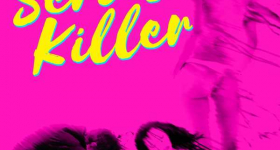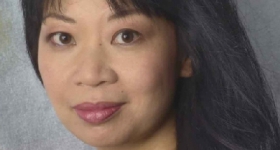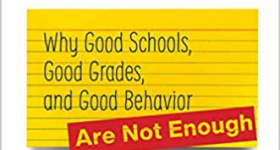Where or how did your most recent book begin?
Counterfeit began as a joke. A couple of years ago, I was working on my last novel, a weighty historical drama set in 1950s southern China. After a particularly grueling day of research, I turned to my partner and said, "The next book I write is going to require zero research and is going to have to be about something I already know a ton about — designer handbags." Not long after, I came across an article in The Washington Post about a real-life con artist who had created a seemingly foolproof counterfeit handbag scheme, a scheme so perfect I knew it belonged in a novel. And thus Counterfeit began to take root.
What was something that surprised you as you were writing this book?
Over the course of my research into the luxury handbag industry and its counterfeit analogue, so many things surprised me. For instance, I didn't know the extent to which many international brands hide that they manufacture in China. Some take ingenious and insidious measures, such as crafting the bulk of a bag in China before shipping it to Italy to be "finished" in an Italian factory, where a handle embossed with a prominent "Made in Italy" can be added to the bag.
What is/would be your ideal setting to write?
I am a true creature of routine. I write in the same place (my study) at the same time (late morning, following meditation and yoga) with a set goal (1000 words/day). I even eat more or less the same lunch every day (a salad I can quickly throw together). You know how Flaubert said, "Be regular and orderly in your life, so that you may be violent and original in your work"? That approach seems to work for me.
Who or what did you read or revisit when you get stuck in your writing?
Whenever I feel lost or stuck, I call my friend, the writer Matt Salesses. He is my trusted first reader for everything I write. And he has the remarkable ability to divine the shape of a story from its very earliest stages. By this point in our friendship, he's saved me years of work by identifying issues that it would have taken me ages to figure out on my own.
Who or what in your real life inspires your writing the most?
I’m an avid practitioner of Ashtanga yoga. I’ve practiced it near-daily for the last 15 years. Unlike other styles of yoga, where a teacher calls out poses, Mysore-style Ashtanga is self-led. Students arrive at the studio anytime between say 6 and 9 am to practice a set series of poses. The teacher moves around the room, guiding each student individually, and when a student has mastered their sequence of poses, the teacher assigns the next one. My yoga practice is what taught me to embrace routine in my writing life. Just as I make my way through the same poses each morning, regardless of my mood or energy level, I sit down at my desk every day to meet a set word count, regardless of how inspired I feel that day to write. With both pursuits, the goal is simply to be there, trusting that if I put in the hours, the results will come.
Categories:









Comments